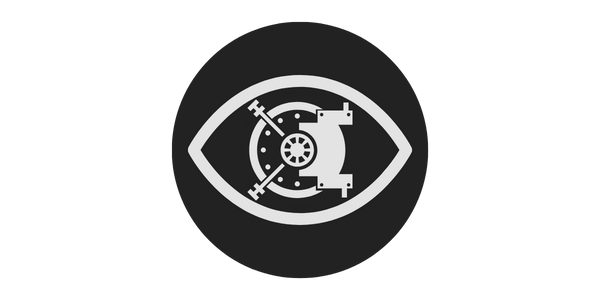Late Diagnosis: Could ADHD Be the Missing Piece?
Russel SmithShare
Short on time? We get it—check the TL;DR at the bottom!
Being misdiagnosed—or undiagnosed—with ADHD as an adult can result in years of frustration and self-doubt. Why does life feel harder than it should? Why can't I keep up like others? Here’s how to identify the signs of ADHD and finally uncover what might have been holding you back.
Adult ADHD: A Tough Diagnosis
The criteria used to diagnose ADHD were primarily designed with children in mind. Terms like "often runs about or climbs" or "fails to finish schoolwork" don’t capture the nuanced challenges faced by adults. Adults with ADHD often find clever ways to adapt, such as hyperfocusing on specific tasks to meet deadlines, masking the underlying struggles.
Since most diagnoses happen during childhood—often when disruptive behaviors arise—adults who don’t fit this mold can go unnoticed for years. Here are the top reasons why ADHD in adults is so often overlooked.
Outdated Diagnostic Standards
Believe it or not, many doctors still doubt the existence of ADHD in adults. Shockingly, 93% of adult psychiatrists admit they’ve had no formal training in ADHD across any age group. Many rely on outdated stereotypes, such as picturing a hyperactive, disruptive child, which doesn’t align with the subtle or internalized symptoms adults face.
For example, adults with ADHD are more likely to struggle with insomnia, rejection sensitivity, and relationship issues than with physical hyperactivity. Unfortunately, these traits are absent from the DSM-5 criteria, which makes diagnosis even harder.
The Weight of Shame
Adults with ADHD often carry decades of shame from being labeled “lazy” or “not living up to potential.” Phrases like “bad brain” or “you’re just not trying hard enough” leave emotional scars. This emotional burden can make it excruciating to seek help, even though many adults only pursue treatment when pressured by a boss or partner.
One particularly painful challenge is rejection sensitive dysphoria—an intense emotional reaction to perceived rejection or criticism. For many, simply leaving the house or scheduling a doctor’s appointment feels like climbing a mountain.
Misdiagnosis: A Common Pitfall
ADHD symptoms in adults often mimic other conditions, such as anxiety, depression, or obsessive-compulsive disorder. For example, racing thoughts might seem like an anxiety disorder but could stem from ADHD's internal hyperactivity.
Unfortunately, these subtler symptoms require a detailed clinical interview, which most doctors don’t have time to conduct during a typical 15-minute visit. This lack of time and understanding contributes to the frequent misdiagnosis of ADHD in adults.
Sleep Struggles
Sleep issues are a major yet underappreciated symptom of ADHD, with 40% of adults citing them as their most significant impairment. Many describe themselves as “night owls,” experiencing a burst of energy at bedtime but struggling to calm their racing thoughts. Others may fall asleep quickly but wake up within hours, their minds buzzing with activity.
Bright Minds, Hidden Challenges
Adults with ADHD are often highly intelligent and creative, which can make their symptoms easier to hide. Many develop effective coping mechanisms to manage daily life—until they face a major stressor, such as parenting a child with ADHD or a demanding career change. These tipping points often lead to diagnosis as the compensatory strategies become unsustainable.
Medication Fears
Concerns about ADHD medication are common, particularly for those with anxiety or mood disorders. People often worry that stimulants will worsen their symptoms or interact poorly with other medications. However, research shows that when dosed correctly, stimulants do not exacerbate anxiety or other conditions. Proper medical oversight ensures safety, even for those with pre-existing conditions like high blood pressure.
TL;DR:
- ADHD diagnostic criteria often fail to address adult symptoms, leaving many undiagnosed.
- Adults may face shame, rejection sensitivity, and misdiagnosis due to overlapping symptoms with other conditions.
- Sleep struggles and internalized hyperactivity are common but underrecognized traits of adult ADHD.
- High intelligence and coping skills can mask symptoms until stress overwhelms existing strategies.
- Properly managed ADHD medication is safe and effective, even for individuals with anxiety or other health conditions.
Why PeakFlowSpace Works for This
At PeakFlowSpace, we understand the challenges of navigating life with ADHD—especially after a late diagnosis. That’s why we created a simple, all-in-one system tailored for ADHD brains.
Here’s how PeakFlowSpace helps:
- Health & Fitness Tools: Create routines that actually stick.
- Task Management: Break down overwhelming tasks into smaller, actionable steps.
- Central Notebook: Keep all your ideas organized in one place.
- Budgeting Tools: Plan and track impulsive spending
- Mindset Practices: Incorporate journaling, gratitude, and mindfulness into your day.
- …and much more!
No subscriptions. No hidden fees. Just one tool to manage the ADHD chaos.
Ready to take control? PeakFlowSpace is here to help.

